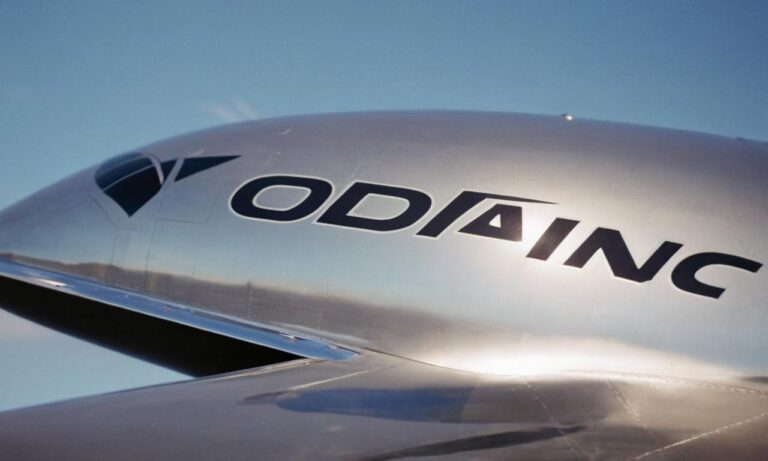Boeing, a global aerospace company, has been a significant player in the aviation industry for many years. To address the question “Is Boeing a Fortune 100 Company,” we will delve into the company’s financial standing, its ranking on the Fortune list, and the factors that contribute to its position in the industry.
The Fortune 100 List
The Fortune 100 list is an annual ranking compiled by Fortune magazine, showcasing the top 100 public and private companies in the United States based on revenue. It serves as a benchmark for the success and financial strength of these corporations. Boeing, being a major player in the aerospace sector, has drawn attention regarding its inclusion or exclusion from this prestigious list.
Boeing’s Financial Standing
Boeing’s financial performance plays a pivotal role in determining its status on the Fortune 100 list. The company is known for manufacturing commercial airplanes, defense systems, and space exploration technologies. Its revenue is influenced by various factors, including global demand for air travel, defense budgets, and geopolitical situations.
Despite facing challenges such as the impact of the COVID-19 pandemic on the aviation industry and production delays with certain aircraft, Boeing has historically maintained a robust financial standing. The company’s revenue, profits, and overall market capitalization contribute to its positioning on the Fortune 100 list.
Industry Positioning
Boeing’s standing in the aerospace industry is a critical factor in its Fortune 100 ranking. The company faces competition from other aerospace giants, and its ability to innovate, adapt to market trends, and secure contracts impacts its financial success. Boeing’s market share, strategic partnerships, and technological advancements all contribute to its overall performance in the industry.
The Role of Global Markets
As a multinational corporation, Boeing’s performance in global markets is essential for its inclusion in the Fortune 100 list. The company’s ability to navigate international trade, establish strong partnerships, and cater to diverse markets affects its revenue streams. Global economic conditions, trade policies, and geopolitical stability all play a role in shaping Boeing’s position on the list.
In conclusion, Boeing’s inclusion in the Fortune 100 list is a reflection of its financial prowess, industry positioning, and success in global markets. The company’s contributions to the aerospace sector, coupled with its ability to navigate challenges, solidify its standing among the top corporations in the United States. As Boeing continues to evolve and adapt to changing market dynamics, its position on the Fortune 100 list remains a testament to its resilience and prominence in the business world.
Boeing’s Global Supply Chain
Examining Boeing’s global supply chain provides insights into the intricate network of suppliers and manufacturers contributing to the company’s overall operations. The efficiency and resilience of this supply chain impact Boeing’s ability to meet demand, control costs, and maintain a competitive edge in the aerospace market.
Strategic Partnerships and Collaborations
Boeing’s success is not only reliant on its internal capabilities but also on its strategic partnerships and collaborations. Engaging with other industry leaders, research institutions, and government agencies fosters innovation, accelerates product development, and enhances Boeing’s capabilities in emerging technologies.
| Country | Market Share |
|---|---|
| United States | 60% |
| China | 15% |
| Europe | 12% |
Frequently Asked Questions
- 1. How often does Fortune magazine update the Fortune 100 list?
- 2. What are the key challenges faced by Boeing in maintaining its financial standing?
- 3. How does Boeing’s global market performance impact its revenue?
- 4. Can fluctuations in defense budgets significantly affect Boeing’s position on the Fortune 100 list?
Sustainable Practices and Corporate Responsibility
Boeing’s commitment to sustainable practices and corporate responsibility is increasingly becoming a factor in its industry standing. From eco-friendly aircraft design to reducing carbon emissions, these initiatives not only align with global environmental goals but also influence consumer perception and government regulations.
Market Trends and Technological Advancements
Exploring the latest market trends and technological advancements in the aerospace sector sheds light on how Boeing adapts to evolving customer preferences and industry standards. Continuous innovation in aircraft design, manufacturing processes, and digital technologies is paramount for Boeing to stay ahead of the curve.
Government Policies and Regulatory Compliance
Boeing’s adherence to government policies and regulatory compliance is crucial for sustained success. Navigating complex aviation regulations, safety standards, and international trade laws requires a proactive approach. Boeing’s ability to stay compliant contributes to its reputation and financial stability.






